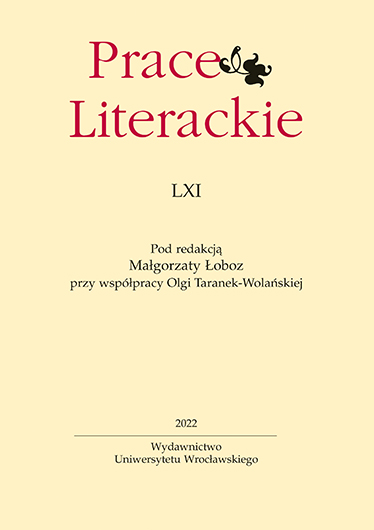

Articles

Illness and its consequences, as an integral part of human life, are often presented in biblical accounts. The Bible, however, puts the main focus of interest not on the depiction of the dramatic experience of the individual but rather on the theological interpretation of disease as a righteous punishment for sin. Hence, except for the Book of Job, the description of man’s suff ering is one-sided, concise and laconic.
Descriptions of isolation are another matter. The examples analysed in this article — Job, King David, Jesus of Nazareth, st. Elizabeth, the anonymous daughter of Jephthah, John the Baptist and the Hebrews during their journey to Canaan — illustrate various models of experiencing the phenomenon of isolation. They can be assigned to three paradigms: isolation–alienation, isolation–integration, as well as isolation–crisis–rebellion.
Due to the specifi c nature of the literary genre, this paper is based on the narrative books of the Bible. The Book of Psalms and prophetic books were excluded from this analysis.